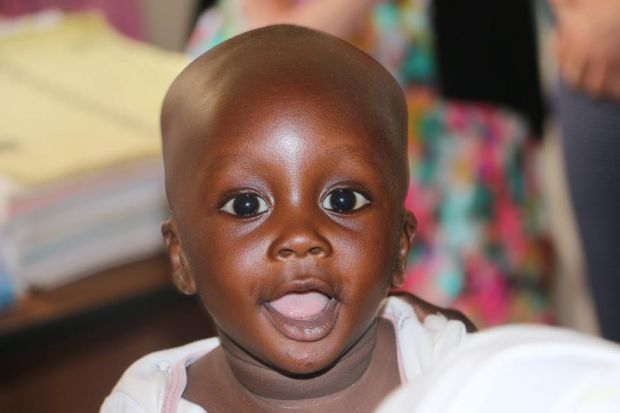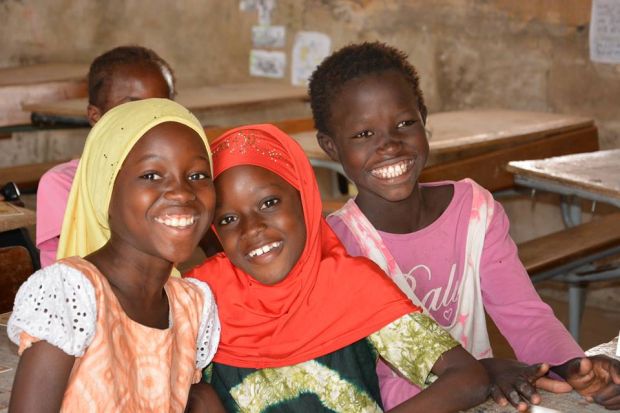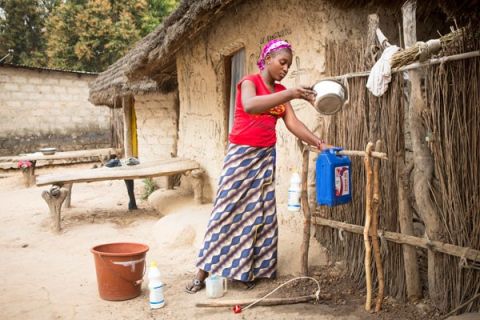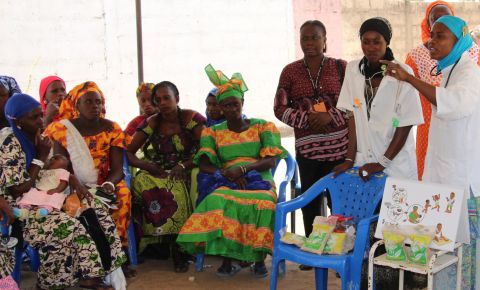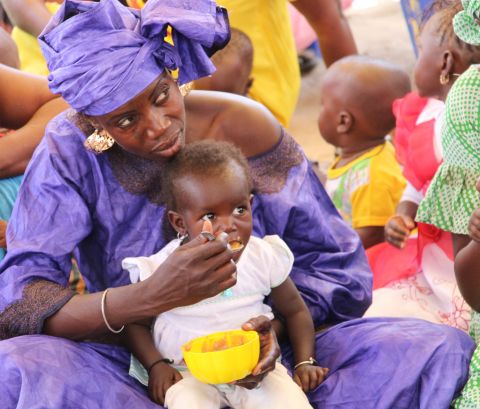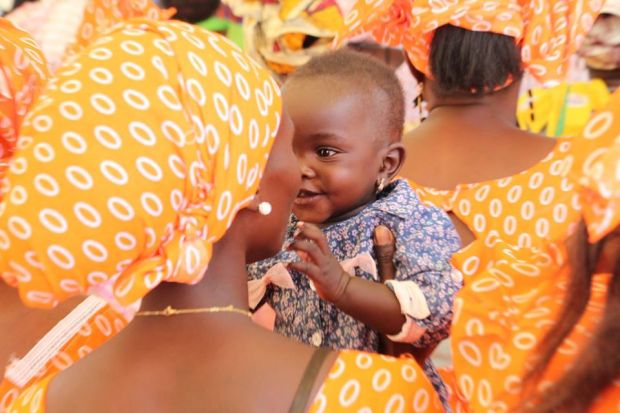Universal Children's Day: World Vision Senegal won't sit still
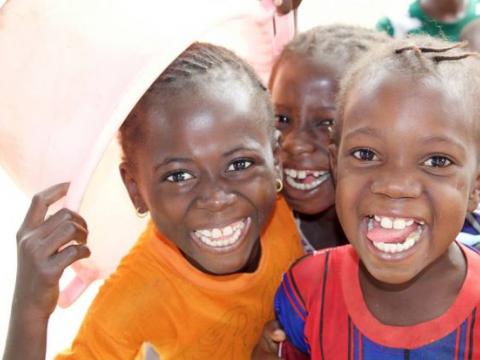
"Let us all work together for the protection of children's rights! Together we can rise to the challenges facing children's well-being." Dr Andrew Catford, National Director of World Vision Senegal.
Every year, the 20 of November is designated Universal Children’s Day. The date commemorates two major breakthroughs in child rights: the adoption on this day in 1959, of the Declaration of the Rights of the Child, and likewise in 1989 the signature of the Convention on the Rights of the Child by the United Nations General Assembly.
This year the date marks the 26th anniversary of Senegal's own ratification of the Convention on the Rights of the Child. And despite the fact that it has been in place since 1989, many children continue to be subjected to violence and find themselves deprived of their basic needs such as having enough to eat and drink.
Child well-being: access all areas
World Vision Senegal has set its sights on improving the well-being of eight million children by 2021. As 2016 draws to a close, the number of children whose lives have felt the positive impact of World Vision's programmes is already up to 1,253,062.
The Universal Children’s Day is an ideal occasion for World Vision Senegal to reflect on impact through its various projects and programmes.
Education and training has had a real boost thanks to World Vision Senegal. In the Thiapy programme in the region of Diourbel, 81% of children now go to primary/elementary school and are building a more hopeful future for themselves their families and their communities. Also, in the Department of Malhem, the number 6-8 year-olds to be able to read and understand a story jumped from 1% to 45% in two years.
The NGO has also made availability of drinking water a reality for many communities. Ndongo Segnane, President of the Borehole Users' Association (ASUFOR), acknowledges the effect on the well-being of families in Mbaracounda, a village in the region of Kaffrine: "Our village almost disappeared because we had no water. But thanks to World Vision and their training programme, we have been using a borehole since 2002, we know how to use and manage it properly. What’s more, we have been able to earn money from this “source”, with almost US$13,000 coming from the sale and supply of water."
World Vision Senegal is also heavily involved in providing and promoting water, sanitation and hygiene facilities (WASH) to local communities. One of strongest signs of success has been the increase of handwashing at critical times.. In the Kolda region, the wayin which children are fed and cared for has risen from 53% to 79.5%, a rise of more than 26 % at a time when the threat from the Ebola epidemic was at its height. As one villager told us;
“My name is Rouguiyatou and I’m 17 years old. I have been through World Vision Senegal’s training in good hygiene practices, such as how to set up a handwashing station (known as ‘tippy-tap’) and how to make bottle traps for flies. I’m one of the teenagers from Paroumba who’s been encouraging kids to get involved in school government, municipal councils and child protection associations. With these skills under my belt I have started educating people in my village on good hygiene and I’ve been showing them the techniques for making handwashing facilities and the flytraps.”
World Vision Senegal also strives to ensure better health and nutrition for all children under five
"Thanks to the World Vision Senegal Health Programme, the women of the village are much more aware of nutrition issues and how to care for a malnourished child. They know how to cope and we have no more cases of malnourishment here," declares Khady Diouf, a health hut staff member in Mbambey.
World Vision Senegal also works with various organisations and systems to put children from ethnic minorities in remote regions in touch with the civil registration authorities. As Mr Kamissa Camara, Mayor of the Salemata community, explains: "We realised that we had a serious problem with the number of birth registrations being so low, so we launched a campaign to raise awareness about this, with support from the Alert, Monitoring and Listening Committees (AMLCs) and Kids' Clubs that World Vision has set up. Since then, we have held public meetings and travelled long distances to pass on the message as far as possible. And 444 registrations were completed as a result. To date our total number of registered children is 452. We hope that from now on at least, registration will happen in all but the most exceptional of cases."
To learn more about World Vision Senegal’s work to bring access to drinking water, food, health and education to the most vulnerable children, please see our Annual Report 2015.
You can also follow us on Facebook and Twitter links also here please.
Crédit Photo : Delphine Rouiller (1, 5, 6, 7), Alexandre Gassama (2), Paul Bettings (4)
